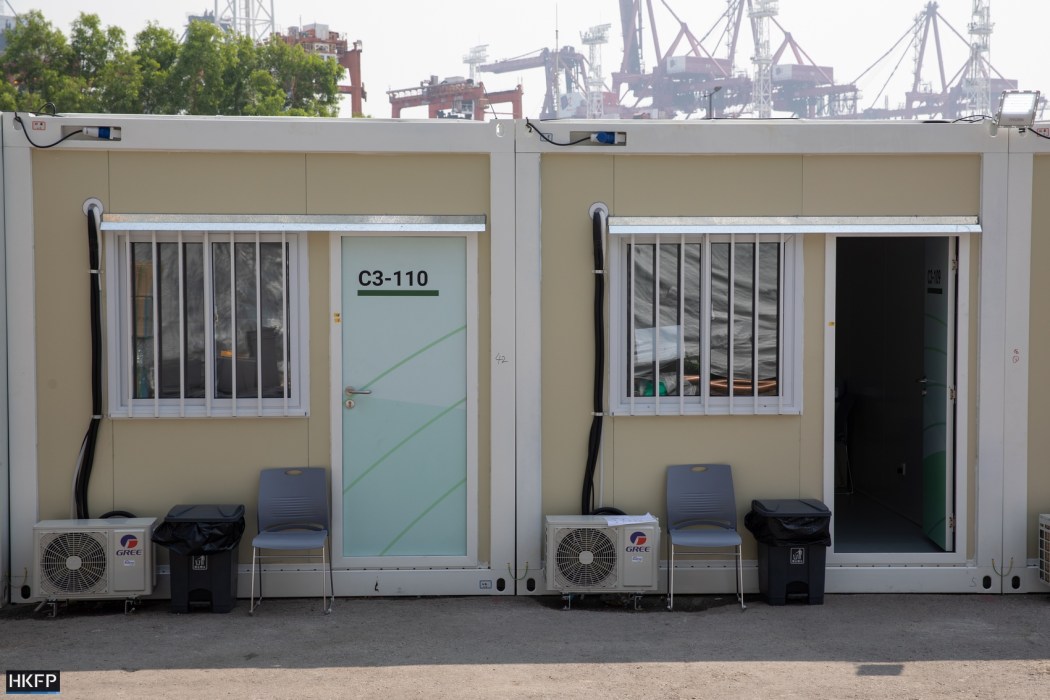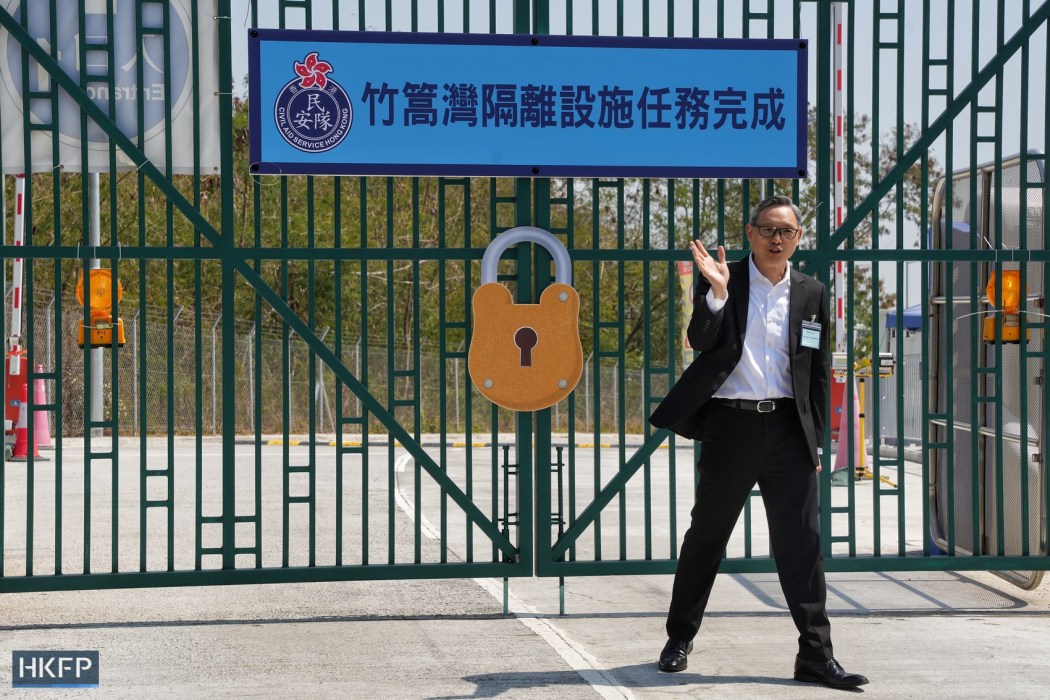The Hong Kong government spent around HK$1.67 billion on its Covid-19 isolation facilities, including costs for staff salary and cleaning.

Secretary for Health Lo Chung-mau revealed the numbers in response to a question from lawmaker Kenneth Lau during a Legislative Council meeting on Wednesday.
Among the HK$1.67 billion, HK$1.05 billion went towards “security, cleansing and disinfection services,” the costliest expense in the breakdown. Around HK$227 million was spent on salaries for Civil Aid Service staff, who operated the facilities, while another HK$209 million was spent on meals.
Lo said the facilities had already “ceased operation, with only a minority of them put into standby mode.”
“The manpower and resources involved are those minimally required to maintain essential security and cleansing services and to ensure the safety of the facilities,” he added.

Authorities built nine facilities amid the fifth Covid-19 wave early last year with the support of mainland Chinese construction teams. They included isolation centres at Tsing Yi, San Tin and other locations across Hong Kong, and expanded facilities at Penny’s Bay, with most completed in a matter of weeks by the end of March.
Covid-19 patients and close contacts were arranged to stay in the facilities during the fifth wave, when Hong Kong recorded the highest death rate from the virus globally, according to analysis by Bloomberg. At the time, those housed in Penny’s Bay likened it to a “madhouse,” while others left their rooms collectively in protest over what they called chaotic arrangements.
were also criticised for being underutilised as the government struggled to process Covid-19 cases as infections soared. Officials did not answer directly when lawmaker Regina Ip asked last June about their occupancy rates.
Just two facilities were in use by January this year, and in March, the last Covid-19 isolation centre – at Penny’s Bay – closed. Officials announced that the facility had “completed its mission.”

Since the closure of the isolation centres, members of the public have raised questions about what will become of the facilities. NGOs have called for the facilities to be turned into transitional housing for low-income families while they wait for public housing.
In response to Lau’s questions about whether the government would retain the facilities “to cope with the future outbreak of infectious diseases in the community,” Lo said details would be announced “once decisions are made.”
“The government is conducting detailed analysis and study concerning the future arrangements of community isolation and treatment facilities,” he said.
Hong Kong maintained some of the world’s strictest Covid-19 rules for almost three years, enforcing a mandatory mask rule and hotel quarantine for arrivals. The city relaxed all of its restrictions earlier this year, announcing that Hong Kong was “back on stage and back in business.”
Support HKFP | Policies & Ethics | Error/typo? | Contact Us | Newsletter | Transparency & Annual Report | Apps
Help safeguard press freedom & keep HKFP free for all readers by supporting our team

LATEST FROM HKFP
HKFP has an impartial stance, transparent funding, and balanced coverage guided by an Ethics Code and Corrections Policy.
Support press freedom & help us surpass 1,000 monthly Patrons: 100% independent, governed by an ethics code & not-for-profit.










